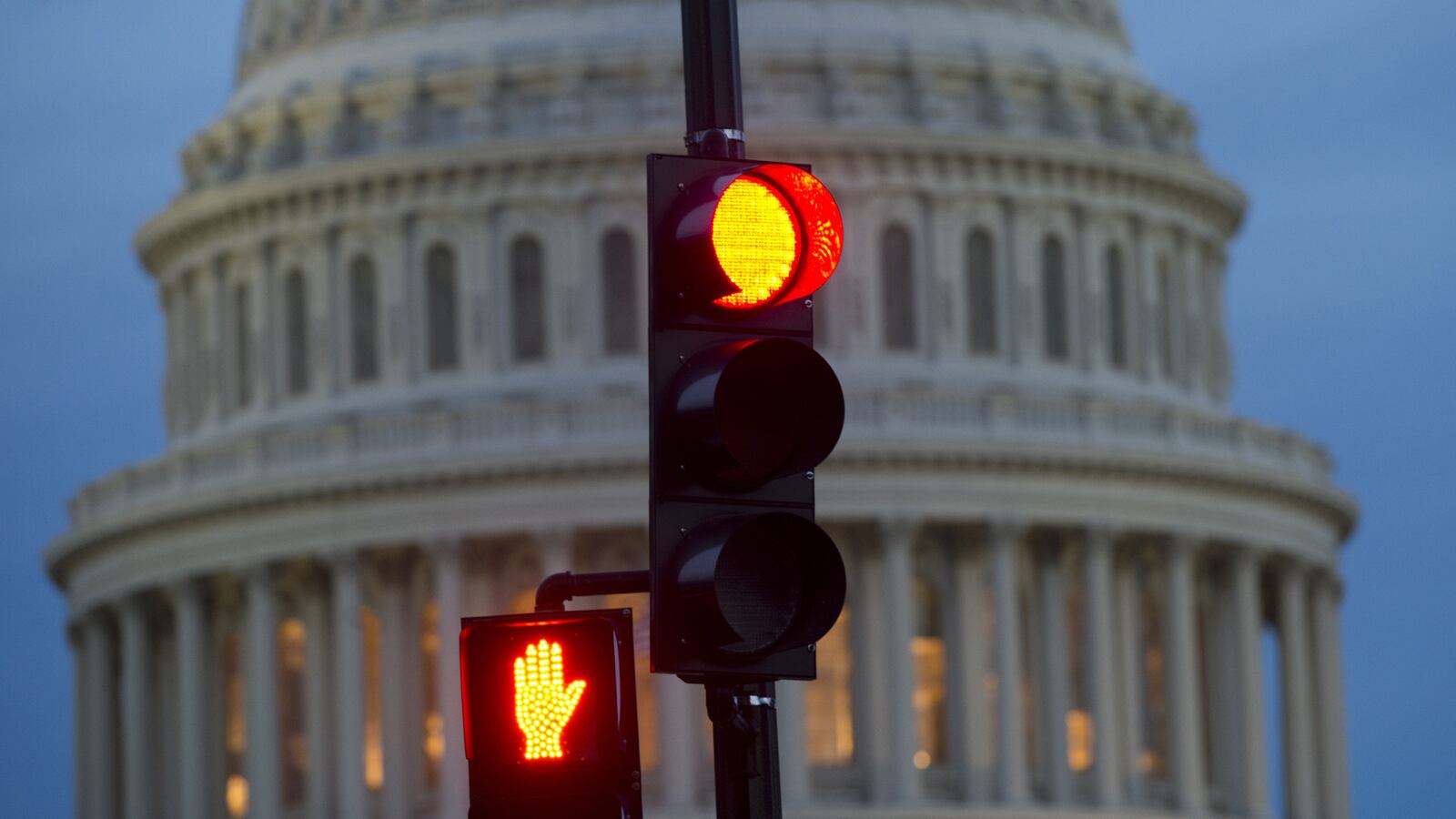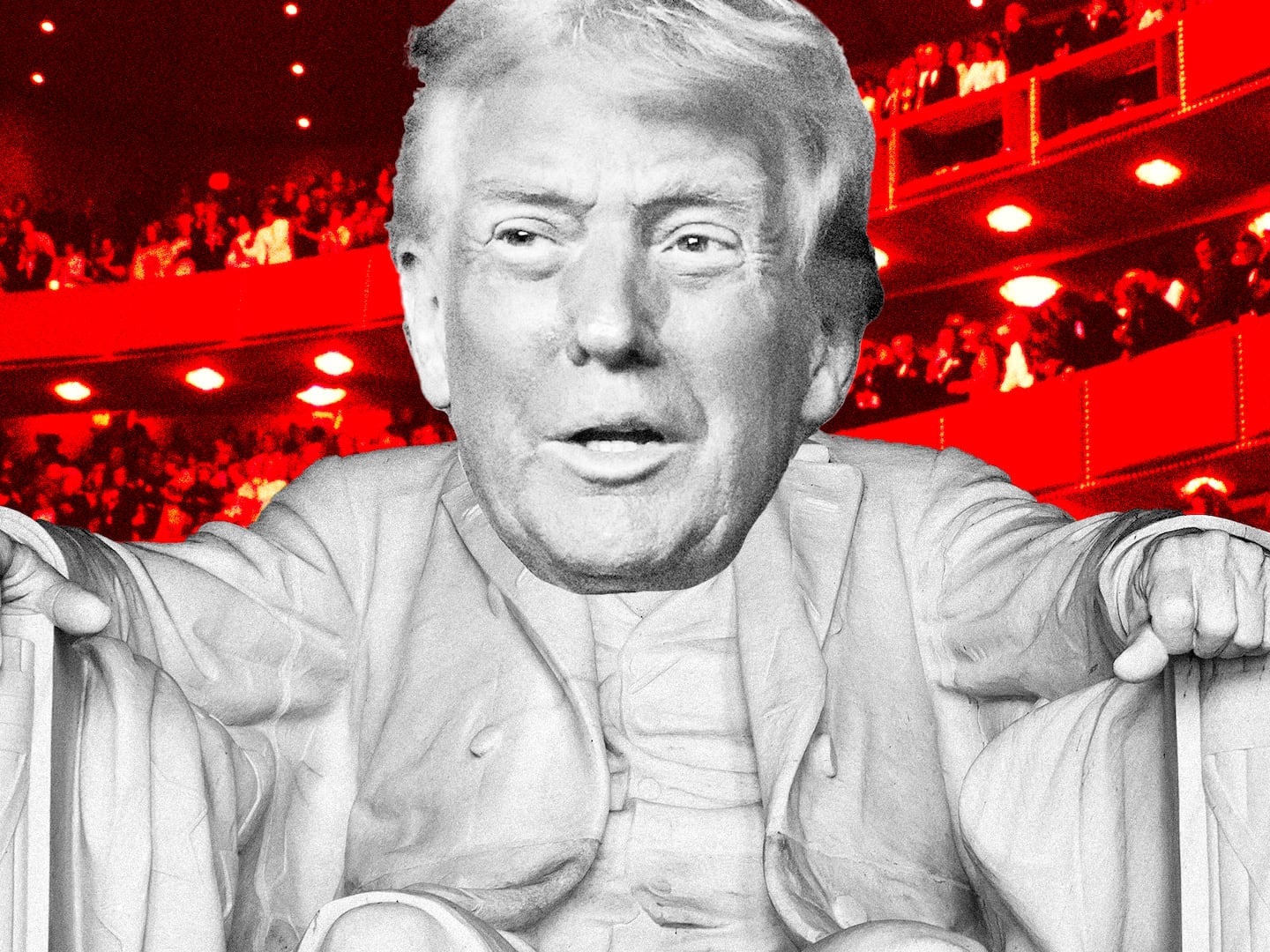And on the eighth day, things got even worse.

In a fast-moving series of events in Washington that saw, albeit briefly, the floating of an idea to revive “a super-committee” to deal with the budget crisis, moderate House Republicans who have been working to find a way out of the shutdown actually lost support for a measure to re-open the government using a combination of Democratic and Republican votes.
That plan, a so-called “clean” continuing resolution, or CR, would fund the government at existing levels—ignoring both Democratic efforts to erase the effects of sequestration and Republican efforts to defund the Affordable Care Act or institute a one-year delay in the controversial law.
At an afternoon press conference, President Obama urged House Speaker John Boehner to do just that. “There are enough reasonable Republicans and Democrats in the House who are willing to vote yes on a budget that the Senate has already passed,” the president said. “That vote could take place today. The shutdown would be over.”
But even as he was speaking, the scenario appeared to be unraveling, with a handful of center-right Republicans who had publicly backed a clean CR abruptly reversing their stance—some denying that they had ever supported it in the first place.
Lou Barletta, a Pennsylvania Republican, insisted that any vote include a repeal of a medical device tax unpopular with both the GOP and Democrats.
“He’s beyond the clean CR,” a Barletta spokesman wrote in an email. “He would vote against it now, because he is now focused on passing the CR with the medical device tax repeal, which can pass the House and Senate. He has found a group of Democrats who would support [it] in the House, [and that] represents a compromise that can get to the president’s desk.”
As for the clean CR—which appeared at the start of the day to have enough votes to pass should Boehner allow it to get to the floor? “That time has passed,” the spokesman said.
A spokesman for Buffalo, New York-area Congressman Chris Collins, who likewise began the day in favor of bringing a measure to the floor, concurred.
“The Congressman is dealing with reality: there is no chance that a clean CR is coming to the floor so we are focusing now on what is possible. Everyone needs to get in a room and compromise.”
And there were more. By the end of Tuesday, Congressmen Randy Forbes of Virginia, Leonard Lance of New Jersey, and Devin Nunes of California had backed away from previous statements of support. And even though there were by some counts still enough votes for a clean CR to pass, the sudden hemorrhaging of support left backers scratching their heads.
“I have no idea where this is going,” said Rep. Peter King, a Long Island Republican and one of the leaders of an effort to end the standoff.
King sighed for a moment.
“There is no real strategy that anyone has,” he said. “I have always strongly felt that if it came to a vote in the House floor, that a clean CR would pass…If the speaker put it up on the floor I still feel confident it would pass.”
But, he cautioned, “I can’t figure out a lot of Republicans who privately say how much they are opposed to all of this, how we have to get out of it and then when the time comes they lose their nerve.”
Those who remained pushing for a clean CR found themselves in an uncomfortable position—both attracting the ire of the House Republican leadership, which has insisted that the votes for a clean bill are not there, and the Tea Party wing of the party, which has viewed such efforts as capitulation.
On the upside, a Senior House aide suggested, at this point even those who wanted to re-open the government were determined to wait and bundle the budget talks with talks to raise the debt ceiling, which the federal government is supposed to hit on October 17.
“The CR ship has sailed, and we are getting so close to the debt ceiling,” the aide said. “There is a sense we might as well wait and see what we can get.”






